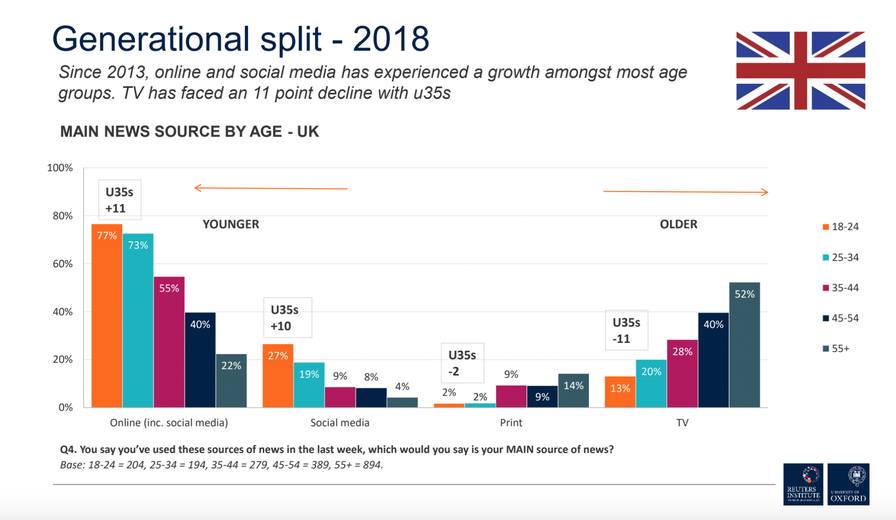The truth behind filter bubbles: Bursting some myths | Reuters Institute for the Study of Journalism

my notes ( ? )
echo chambers and filter bubbles are slightly different... echo chambers could be a result of filtering or ... other processes, but filter bubbles have to be the result of algorithmic filtering...
people main source of news roughly equal ... online and television... TV is more likely... people over 45. People under 45 are more likely to get their news online... in most countries Facebook is the dominant platform for news use... algorithmically driven services are very important, and a lot of people are using them to get news online...
Self-selected personalisation... we voluntarily do to ourselves... selective exposure... influenced by ... people's interest levels in news, their political beliefs and so on... has pretty much always been true... Pre-selected personalisation ... done to people, sometimes by algorithms... algorithms are possibly making choices on behalf of people and they may not be aware of it...
self-selected personalisation is more prominent offline than it is online... Social media combines self-selected... with pre-selected personalisation... People who use social media for news... use more and more different online news sources... effect was stronger for younger people... also ... people who don't have high levels of interest in the news... stronger for YouTube and Twitter than... Facebook...
most people, particularly people who use social media, are not terribly interested in the news...
Search engines are different ... people ... trying to find news... still possible that search engines will use algorithmic selection...automated serendipity effectively diversifies people's news diets. People who use search engines for news on average use more news sources ... more likely to use sources from both the left and the right....
Even though ... more diversity when we use social media and search, it's possible that this diversity consists of more partisan or polarising news sources...in eight out of 12 [countries] online news audiences are slightly more polarised...
online news use on search and social media is more diverse. But there's a possibility that this diversity is causing some kind of polarisation... the focus on filter bubbles may be preventing us from properly confronting the deeper causes of division in both politics and society
Read the Full Post
The above notes were curated from the full post reutersinstitute.politics.ox.ac.uk/risj-review/truth-behind-filter-bubbles-bursting-some-myths.Related reading
More Stuff I Like
More Stuff tagged algorithm , social media , news , filter bubble , polarization
See also: Social Media Strategy , Content Creation & Marketing , Surveillance Capitalism, Social media and Polarisation (Overview) , Social Web , Media